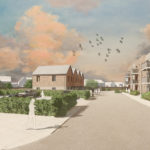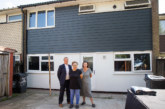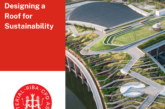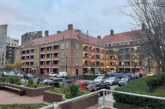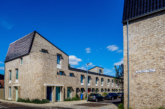As part of its commitment to Cambridge City Council’s climate change objectives, Cambridge Investment Partnership is continually seeking ways to reduce the environmental impact of new buildings and address the inefficiencies of older council housing within the city.
One such development is Colville Road Phase Two, which sees the replacement of two housing blocks containing 24 aging, post war council homes with 67 brand new sustainable council homes.
Originally designed to provide heating and hot water through a gas-fired Combined Heat and Power engine, CIP revised the energy strategy to make the development gas free and provide heating and hot water via a communal Air Source Heat Pump system and a combination of photovoltaic and solar thermal panels located on the roof.
Cllr Mike Todd Jones, Executive Councillor for Housing at Cambridge City Council and CIP board member said: “With homes in Cambridge accounting for 31% of the total carbon emissions from the city[1] we are committed to improving the energy efficiency of existing council homes as well as building 1000 sustainable new council homes.
“Our work through Cambridge Investment Partnership is going a long way to deliver this as well as helping residents to reduce their energy usage, to ensure fuel costs are minimised.”
Alongside the revisions to the energy strategy, CIP has also further enhanced the homes at Colville Road to include a range of fabric improvements to reduce heat and energy loss, leading to a reduction in the overall building energy demand. These improvements include fully insulated wider external wall cavities, enhanced specification insulation in floors and roofs, and triple-glazed windows throughout.
Wastewater Heat Recovery is also being used to transfer heat discharged from waste shower water into the incoming cold-water supply, which will lead to less energy being used to provide hot water to the mixer. Solar thermal panels are being incorporated to pre-heat the primary heating loop, allowing the Air Source Heat Pump system to operate at a lower intensity and save more power.
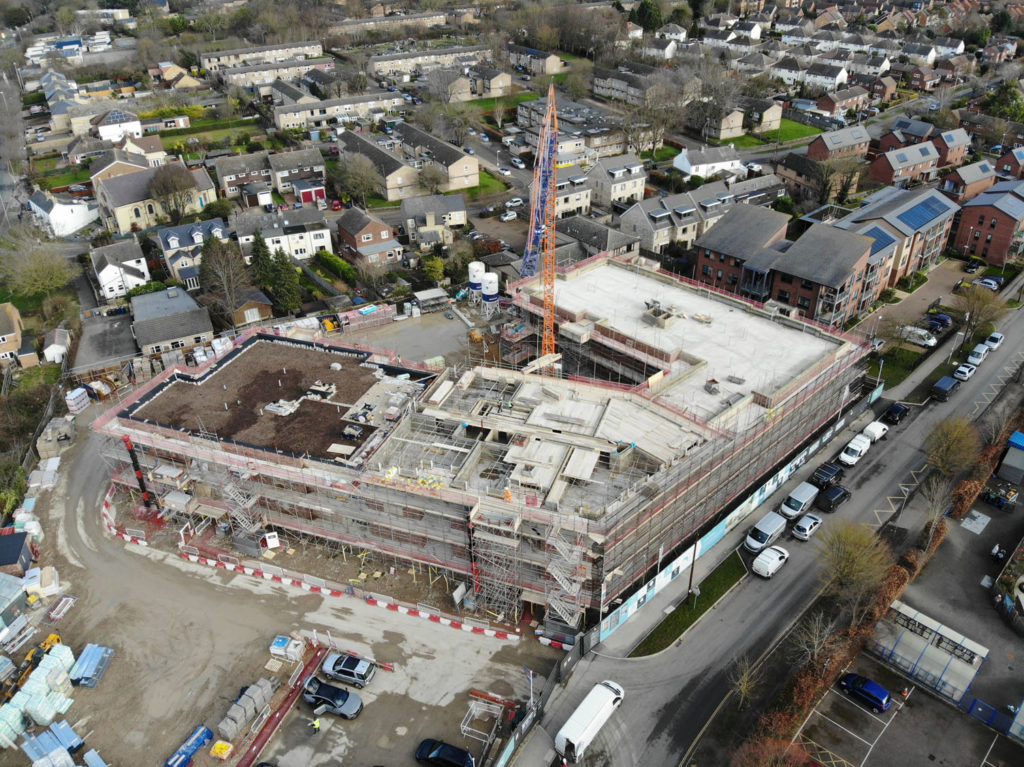
Tom Hill, Regional Director of Hill commented: “All our developments offer high levels of sustainability and are built in accordance with the Cambridge Sustainable Housing Design Guide. In addition, in 2021, we introduced gas free developments across all our new schemes through low carbon heating sources, four years ahead of the Government’s Future Homes Standard.
“We are extremely proud of what is being achieved at Colville Road, which we are implementing across our other developments as the first stage on the journey towards net zero carbon.”
During construction all of CIP’s waste wood and pallets are being recycled through the community wood recycling initiative to provide carbon credits and the supply chain are also required to remove and recycle all packaging from site.
Externally the homes at Colville Road will also benefit from sedum green roofs, and extensive soft landscaping, which will allow surface water to infiltrate ensuring there is no off-site surface water discharge.
Biodiversity is also being enhanced with new trees being planted to encourage insects and other wildlife as well as many of the existing trees being retained. Bird and bat boxes are also being introduced along the perimeter of the building.
To promote clean travel and reduce air pollution, electrical vehicle charging points are being installed, with a total of 10 connections available as well as providing ample bicycle storage to encourage residents to use sustainable modes of transport.
[1] https://www.cambridge.gov.uk/media/9581/climate-change-strategy-2021-2026.pdf
Header image shows a CGI of Colville Road which will provide a mixture of council homes and apartments in Cambridge.

